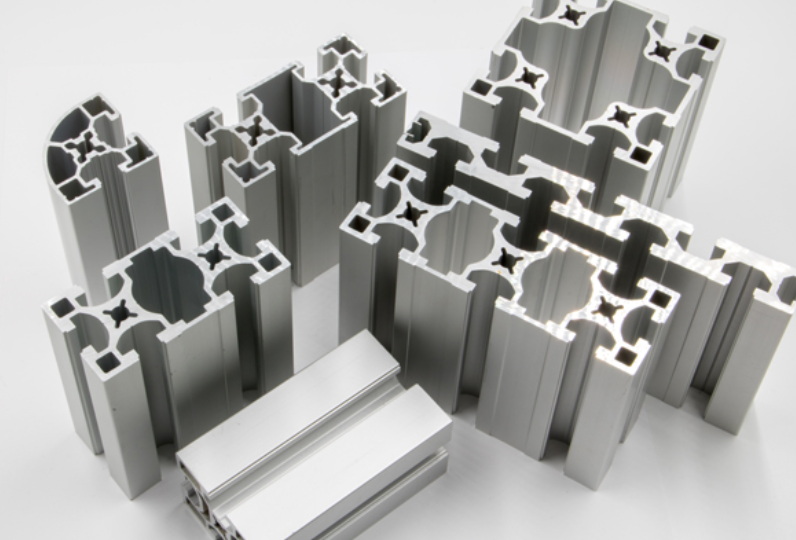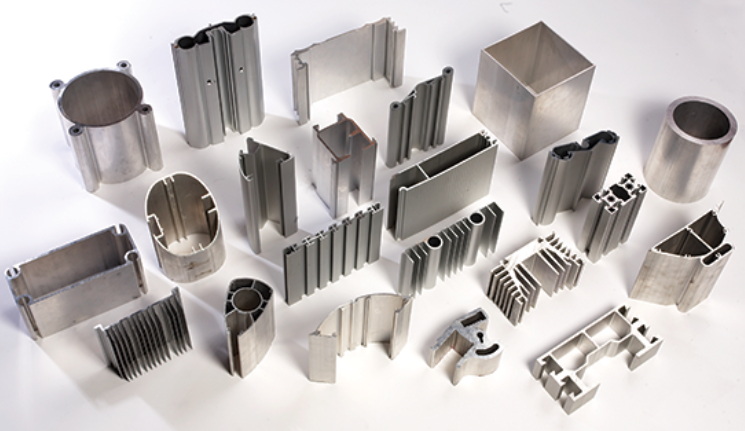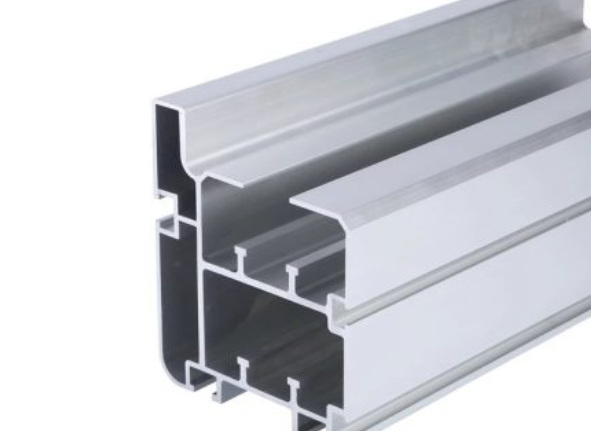Content Menu
● Overview of Aluminum Extrusion
● The State of Aluminum Extrusion in Mexico
>> Key Players in the Mexican Market
● Comparison with Other Locations
● Advantages of Aluminum Extrusion in Mexico
● Challenges Facing the Industry
● Quality Standards and Certifications
>> Importance of Quality Control
● Future Outlook
>> Innovations on the Horizon
● Case Studies of Successful Mexican Companies
● Conclusion
● FAQs
>> 1. What are the main industries that use aluminum extrusions?
>> 2. How does the cost of aluminum extrusion in Mexico compare to other countries?
>> 3. What quality standards do Mexican manufacturers adhere to?
>> 4. Are there any environmental regulations affecting aluminum extrusion in Mexico?
>> 5. What future trends can we expect in the aluminum extrusion market?
● Citations:
Aluminum extrusion is a critical manufacturing process that shapes aluminum into desired profiles through the use of heat and pressure. This method is widely utilized in various industries, including automotive, construction, and consumer goods. In recent years, Mexico has emerged as a significant player in the global aluminum extrusion market. This article explores how aluminum extrusion in Mexico compares to other locations, focusing on production capabilities, market dynamics, quality standards, and competitive advantages.

Overview of Aluminum Extrusion
Aluminum extrusion involves forcing aluminum alloy through a die to create specific shapes. The process can produce complex cross-sections and is known for its efficiency and versatility. Key benefits of aluminum extrusion include:
- Lightweight: Aluminum is significantly lighter than steel, making it ideal for applications where weight reduction is essential.
- Corrosion Resistance: Aluminum naturally forms a protective oxide layer that enhances its durability.
- Recyclability: Aluminum can be recycled without losing its properties, making it an environmentally friendly option.
- Design Flexibility: The extrusion process allows for intricate designs and custom profiles that can meet specific application requirements.
The State of Aluminum Extrusion in Mexico
Mexico has established itself as a vital hub for aluminum extrusion due to several factors:
- Strategic Location: Proximity to the United States allows for easy trade and logistics, benefiting manufacturers who export to the U.S. market.
- Skilled Workforce: A growing pool of skilled labor in engineering and manufacturing supports the industry's development.
- Investment in Technology: Companies like ABC Aluminum and Valsa have invested heavily in state-of-the-art machinery and technology to enhance production efficiency and product quality.
- Government Support: The Mexican government has implemented policies to promote manufacturing and foreign investment, further boosting the aluminum sector.
Key Players in the Mexican Market
1. ABC Aluminum: With over 30 years of experience, ABC Aluminum specializes in custom extrusions for various industries. They emphasize quality control and customer service.
2. Valsa: Operating for more than 55 years, Valsa focuses on high-quality aluminum profiles for construction and automotive sectors. Their commitment to innovation sets them apart.
3. Simax: Located in San Luis Potosí, Simax is known for its industrial and architectural aluminum parts. Their competitive advantages include storage availability and growth potential.
4. AluMex: A newer entrant that has rapidly gained recognition for its sustainable practices and focus on eco-friendly products.
5. Grupo Aluminio: This company has diversified its offerings to include both extruded products and value-added services such as machining and assembly.
Comparison with Other Locations
When comparing aluminum extrusion in Mexico with other major regions such as the United States, Canada, and Europe, several factors come into play:
| Factor | Mexico | United States | Canada | Europe |
| Production Cost | Lower labor costs | Higher labor costs | Moderate labor costs | Varies by country |
| Market Accessibility | Easy access to U.S. market | Established domestic market | Strong trade agreements | Diverse markets but regulatory hurdles |
| Quality Standards | High quality with certifications | Stringent quality regulations | High standards | Varies by country |
| Technological Advancements | Rapidly adopting new technologies | Advanced technology | Competitive technology | Leading innovations |
Advantages of Aluminum Extrusion in Mexico
1. Cost Efficiency: Labor costs in Mexico are generally lower than those in the U.S. or Canada, allowing manufacturers to offer competitive pricing.
2. Trade Agreements: The United States-Mexico-Canada Agreement (USMCA) facilitates tariff-free access to North American markets for many aluminum products.
3. Growing Demand: The demand for aluminum extrusions is increasing across various sectors such as automotive, construction, and renewable energy, providing opportunities for Mexican manufacturers.
4. Environmental Regulations: Mexico's commitment to sustainable practices aligns with global trends towards eco-friendly manufacturing processes.
5. Access to Raw Materials: Mexico has access to abundant natural resources necessary for aluminum production, including bauxite mining operations located within the region.
6. Proximity to Major Markets: Being close to large markets like the U.S. allows for reduced shipping times and costs, making it easier for Mexican companies to compete effectively.

Challenges Facing the Industry
Despite its advantages, the aluminum extrusion industry in Mexico faces several challenges:
- Tariffs and Trade Policies: Recent changes in U.S. tariffs on aluminum imports could impact the competitiveness of Mexican extruders.
- Supply Chain Disruptions: Global supply chain issues have affected raw material availability and pricing.
- Competition from Other Regions: Countries like China continue to dominate the global market with lower production costs.
- Infrastructure Limitations: Some regions may face challenges related to transportation infrastructure that can affect logistics and delivery times.
- Environmental Concerns: As environmental regulations tighten globally, Mexican companies must adapt their processes to remain compliant while still being cost-effective.
Quality Standards and Certifications
Quality assurance is paramount in the aluminum extrusion industry. Mexican manufacturers adhere to international quality standards such as ISO 9001 and specific certifications related to aluminum products. Companies like ABC Aluminum utilize advanced quality control systems to ensure that their products meet customer specifications consistently.
Importance of Quality Control
Quality control processes involve rigorous testing at various stages of production:
- Material Inspection: Raw materials are tested for composition before being processed.
- Dimensional Checks: Extruded profiles undergo dimensional checks to ensure they meet specified tolerances.
- Surface Treatment Evaluation: Post-extrusion treatments such as anodizing or painting are assessed for adherence quality.
- Final Product Testing: Finished products are subjected to performance tests relevant to their intended applications.
Future Outlook
The outlook for aluminum extrusion in Mexico appears promising due to ongoing investments in technology, a skilled workforce, and favorable trade conditions. As global demand for lightweight materials continues to rise, Mexican manufacturers are well-positioned to capitalize on these trends.
Innovations on the Horizon
Emerging technologies such as automation, artificial intelligence (AI), and advanced robotics are set to revolutionize aluminum extrusion processes:
- Automation Technologies: Automated systems can enhance production speed while reducing human error.
- AI Integration: AI can optimize manufacturing processes by predicting maintenance needs or identifying inefficiencies.
- Sustainable Practices: Innovations aimed at reducing energy consumption during extrusion will likely become more prevalent as manufacturers strive for greener operations.
Case Studies of Successful Mexican Companies
To illustrate the success of aluminum extrusion in Mexico further, we can examine a few case studies:
1. ABC Aluminum's Expansion Strategy
- ABC Aluminum recently expanded its facility near Monterrey by investing $5 million into new extrusion presses that increase their capacity by 30%. This expansion allows them to meet growing demand from automotive clients who require lightweight components for electric vehicles.
2. Valsa's Sustainable Initiatives
- Valsa has implemented a closed-loop recycling system within their operations that recycles scrap material generated during production back into usable feedstock. This initiative not only reduces waste but also lowers raw material costs significantly.
3. Simax's Innovative Products
- Simax developed a new line of thermal break profiles that improve energy efficiency in buildings. By collaborating with architects and builders early in the design process, they have positioned themselves as leaders in energy-efficient construction solutions.
Conclusion
In conclusion, aluminum extrusion in Mexico offers a competitive edge compared to other regions due to cost efficiency, strategic location, growing demand across various industries, and a commitment to quality standards. While challenges exist—such as tariffs and competition from other countries—the industry's focus on innovation and sustainability positions it well for future growth. As companies continue investing in advanced technologies and sustainable practices, Mexico is likely to remain a key player in the global aluminum extrusion market.

FAQs
1. What are the main industries that use aluminum extrusions?
Aluminum extrusions are widely used in construction, automotive manufacturing, consumer goods production, aerospace applications, electronics packaging, and renewable energy sectors like solar panel frames.
2. How does the cost of aluminum extrusion in Mexico compare to other countries?
The cost of aluminum extrusion in Mexico is generally lower due to reduced labor costs compared to countries like the U.S., making it an attractive option for manufacturers looking for cost-effective solutions without compromising quality.
3. What quality standards do Mexican manufacturers adhere to?
Mexican manufacturers comply with international quality standards such as ISO 9001 along with specific industry certifications related to aluminum products like ASTM standards which ensure product reliability across various applications.
4. Are there any environmental regulations affecting aluminum extrusion in Mexico?
Yes, Mexican manufacturers are increasingly adopting sustainable practices aligned with global environmental regulations aimed at reducing carbon footprints while enhancing energy efficiency throughout their production processes.
5. What future trends can we expect in the aluminum extrusion market?
Future trends include increased demand for lightweight materials across various sectors; advancements in manufacturing technologies such as automation; a focus on sustainability practices; expansion into emerging markets; and greater collaboration between manufacturers and end-users during product development phases.
Citations:
[1] https://abc-aluminum.com
[2] http://simax.com.mx/en/home/
[3] https://www.volza.com/p/aluminum-extrusion/import/import-in-mexico/
[4] https://valsa.com.mx/?page_id=1885
[5] https://abc-aluminum.com/quality-specialists-aluminum-extrusion-mexico/
[6] https://www.alamy.com/stock-photo/aluminum-extrusion-manufacturing.html
[7] https://www.spglobal.com/commodity-insights/en/news-research/latest-news/metals/051324-us-extruders-warn-of-consequences-from-mexicos-aluminum-tariff-reversal
[8] https://www.6wresearch.com/industry-report/mexico-aluminum-extrusion-market-outlook
[9] https://abc-aluminum.com/solutions-for-aluminum-and-extrusion-services-in-mexico/
[10] https://www.freepik.com/free-photos-vectors/aluminum-extrusion
[11] https://www.alcircle.com/news/mexico-is-one-of-the-15-countries-facing-anti-dumping-probe-by-the-us-for-aluminium-extrusion-exports-101901






















